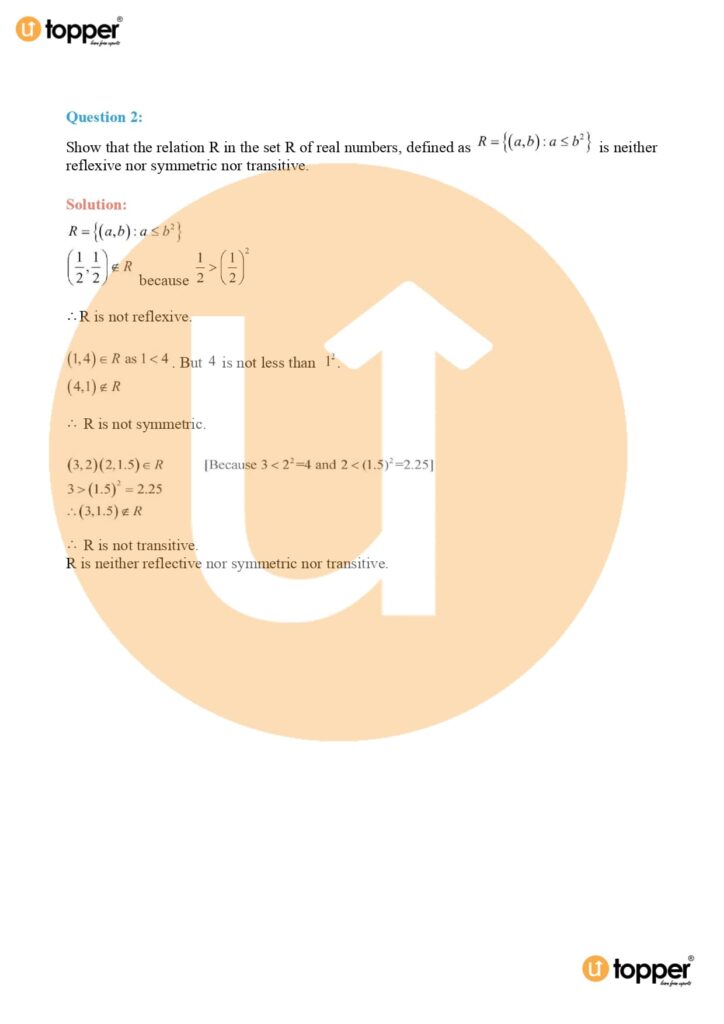Ncert Solutions Class 12 Maths Chapter 1 Relations and Functions Exercise 1.1 Question 2 Solution
Class 12 Maths Ncert Solution Chapter 1 – Relation and Functions reviewing the NCERT solutions is an important part of getting ready for your Class 12 board exams, JEE (Main and Advanced), and other tests. Also You can Understand the Detailed Concept from the Maths Ncert Book .
This will clear up any doubts you have about any question and help you get better at applying what you know. In this article, we will give you NCERT Solutions for Class 12 Maths – Chapter 1 – Relations and Functions Ex 1.1 Questions 2. Also if you want to read more about class 12 ncert questions can go through Utopper ncert books class 12. Now Find out by reading Class 12 Exercise 1.1 Questions 2.
Class 12 Maths Ncert Solutions Chapter 1 Relation and Functions Exercise 1.1 Questions 2 Complete Solution
Access the solution to Class 12 math CBSE Chapter 1 Relation and Functions Exercise 1.1 Page 5 Questions 2 –

Transcript :
Ex 1.1, 2 Show that the relation R in the set R of real numbers, defined as R = {(a, b) : a b2} is neither reflexive nor symmetric nor transitive R = {(a, b) : a b2} Checking for reflexive, If the relation is reflexive, then (a, a) R i.e. a a2 Let us check Hence, a a2 is not true for all values of a. So, the given relation it is not reflexive. Checking for symmetric, To check whether symmetric or not, If (a, b) R, then (b, a) R i.e., if a b2, then b a2 Since b a2 is not true for all values of a & b. Hence, the given relation is not symmetric Checking transitive To check whether transitive or not, If (a, b) R & (b, c) R , then (a, c) R i.e., if a b2, & b c2 then a c2 Since if a b2, & b c2 then a c2 is not true for all values of a, b, c. Hence, the given relation it is not transitive Therefore, the given relation is neither reflexive, symmetric or transitive

